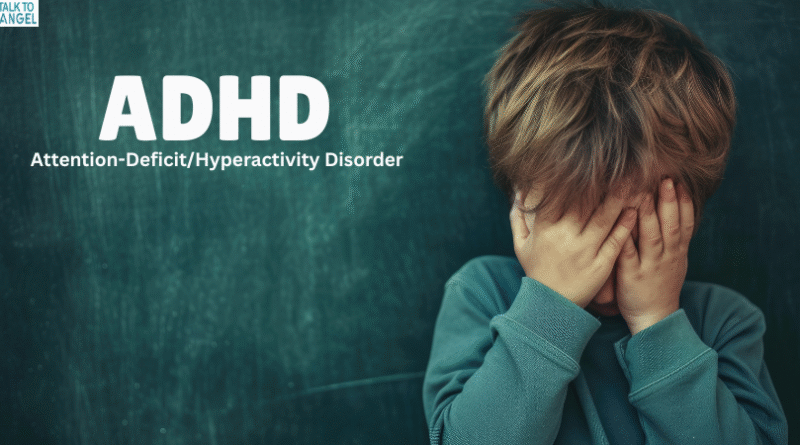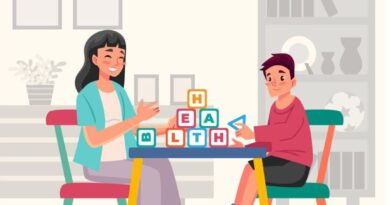The Reasons ADHD Is Not Just Hyperactivity
A child with Attention-Deficit/Hyperactivity Disorder (ADHD) is typically thought of as someone who is constantly moving, talking endlessly, and unable to remain still. But hyperactivity is a single aspect of ADHD. Both children and adults are affected by this disorder, which affects attention, impulse control, emotions, and behaviour in different ways.
What is ADHD?
Attention Deficit/Hyperactivity Disorder affects the brain’s ability to process information, regulate impulses, and maintain focus. It is not just a problem for children; it affects many people worldwide. Attention deficit disorder affects a large number of adults as well, albeit their symptoms may differ from those of children.
Three categories of Attention Deficit/Hyperactivity Disorder can be differentiated:
- Inattentive Type: This personality type mostly struggles with organisation and concentration. They could find it difficult to follow instructions, lose items easily, or get distracted by even small diversions.
- Hyperactive-Impulsive Type: More impulsive and physically energetic is the hyperactive-impulsive type. People with this personality type may act carelessly, talk too much, or fidget constantly.
- Combined Type: Some people have characteristics of both hyperactivity and impulsivity, as well as inattention.
The Myth: It’s All About Being Overly Active
Attention Deficit/Hyperactivity Disorder encompasses a wide range of symptoms, while hyperactivity frequently stands out as the primary sign. Let’s examine the main elements of ADHD that go beyond physical hyperactivity alone.
1. Inattention: The Unspoken Battle
Because it is less obvious than hyperactivity, people occasionally overlook the inattentive side of Attention disorder. It can be equally, if not more, difficult, though.
Typical indicators of inattention include:
- Problems Focusing: Individuals with Attention Disorder may have trouble focusing on repetitive or boring tasks. This could make it challenging to fulfil obligations for work, education, or simply daily housework.
- Forgetfulness: People with Attention Deficit/Hyperactivity Disorder are prone to forgetfulness; they frequently have trouble remembering things, losing things, and forgetting appointments. Both the person with ADHD and their friends may become frustrated by this memory loss.
- Disorganisation: Managing time and deadlines can be challenging for those with ADHD who are disorganised.
Relationships, work, and education may all be significantly impacted by these problems. For example, a child with inattentive ADHD may be perceived as low motivation or slow because they struggle to focus in class, and an adult may find it challenging to handle their responsibilities at work or home.
2. Impulsivity: Behaving Without Contemplation
Another important aspect of ADHD is impulsivity. This suggests that people with attention deficit might make snap decisions without thinking through the consequences. For instance, they might make rash decisions, interrupt others in the middle of a conversation, or act recklessly without thinking through the consequences.
The following are instances of impulsive behaviour:
- Talking Out of Turn: People with Attention Deficit/Hyperactivity Disorder may find it difficult to wait patiently for their turn to speak, frequently interrupting others in the middle of sentences. This is an example of an impulsive behaviour. Relationship conflict and uncertainty may result from this.
- Making Snap Decisions: They might make impulsive decisions, such as buying something they can’t afford or speaking without thinking about the impact on other people.
- Risk-Taking Behaviours: Impulsivity can occasionally result in unsafe behaviours such as gambling, speeding while driving, or taking part in risky activities without considering the possible risks.
Relationships, social interactions, and decision-making are all impacted by impulsivity, which can occasionally result in regret after the fact.
3. Emotional Sensitivity: Strongly Sensing Everything
Along with behaviour and concentration, emotions are also impacted by ADHD. Many people with attention-deficit/hyperactivity disorder have severe mood fluctuations that can be overwhelming.
Typical emotional symptoms consist of:
- Emotional changes: People with Attention Deficit/Hyperactivity Disorder may experience sudden changes in their mood. They may experience intense joy one minute, followed by abrupt annoyance or anger the next.
- Frustration: People with ADHD frequently experience frustration, especially when they find it difficult to focus or finish tasks.
- Feedback Sensitivity: People with ADHD are frequently extremely sensitive to criticism, which can lower their self-esteem. Even when the criticism is helpful, they could take it personally and get disheartened.
Partnership issues may worsen as a result of these emotional difficulties, especially when the feelings are strong.
4. Co-Occurring Conditions: A Comprehensive View
ADHD is rarely isolated alone. Learning disabilities, anxiety, or depression are common among people with ADHD. These new difficulties could make life much more difficult.
- Anxiety: Because of ongoing worry about the future or feelings of overload, anxiety can make it difficult for people with Attention Deficit/Hyperactivity Disorder to focus or organise their tasks.
- Depression: Depression and ADHD frequently combine, resulting in decreased motivation, depressive symptoms, and a lack of interest in once-enjoyed activities.
- Learning Difficulties: School can be particularly difficult for kids with ADHD who also have learning difficulties. These learning difficulties may also affect their confidence and academic performance.
Addressing these concurrent problems is essential to effectively managing Attention Deficit/Hyperactivity Disorder.
5. Therapy: Locating Appropriate Assistance
ADHD may be controlled with the appropriate support and care. While there is no cure for ADHD, there are several therapies that can help reduce symptoms and improve quality of life.
Options for treatment include:
- Medication: To improve focus and reduce impulsive behaviour, stimulant drugs are commonly administered. People who don’t respond well to stimulants can take non-stimulant drugs.
- Online counselling and therapy: Through behavioural therapy, people with ADHD can improve their emotional regulation, organisational skills, and symptom control.
- Support Groups: Participating in a support group can offer insightful information, motivation, and the opportunity to exchange stories with people who are aware of the difficulties associated with having ADHD.
- Educational Support: To help students with attention disorders thrive academically, schools might provide accommodations such as extra time on tests or individualised education plans (IEPs).
Conclusion
ADHD is a complicated illness that affects a lot more than just hyperactivity. It affects emotions, impulse control, attention, and other areas. We can better support people with Attention Deficit/Hyperactivity Disorder and help them succeed in school, the workplace, and life if we have a comprehensive grasp of the disorder. Getting professional help can make a huge difference if you think you or someone you know could have ADHD. Successful and meaningful lives are possible for people with ADHD if they receive the proper support.
Getting in touch with the best psychologist in India can help you manage ADHD if you’re having problems with its symptoms or need assistance overcoming its obstacles. Many mental health specialists specialise in Cognitive Behavioural Therapy (CBT), a very successful treatment for ADHD that aids in the development of techniques for enhancing emotional regulation, attention, and impulse control.
Access to leading psychologists who can offer customised CBT (Cognitive Behavioural Therapy) strategies to meet the particular needs of people with ADHD is made possible via platforms such as TalktoAngel and the Psychowellness Center, the best mental health wellness clinics in Delhi. By using these platforms to seek expert treatment, people with ADHD can reach their full potential and live more balanced, satisfying lives.




